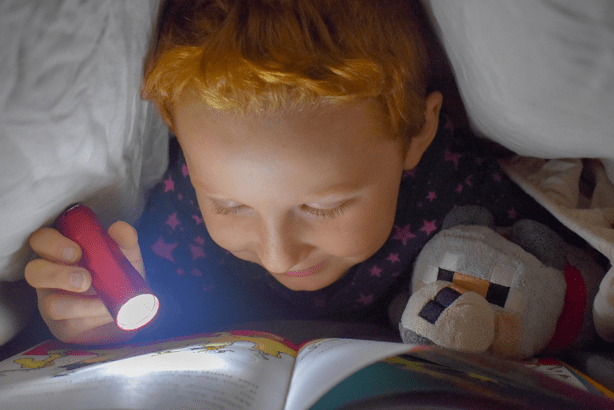Does your child suffer from sleep issues? You’re not alone. A study in 2019 found that nearly 80 percent of autistic pre-school children have disrupted sleep.1
Children with autism are twice as likely to have sleep problems. Think back to when your child was a baby, long before they were diagnosed. Were they difficult to settle? Did they wake up easily and for no apparent reason? Did they ever sleep through the night? Did they fight off sleep and do anything they could to avoid closing their eyes? My son certainly did.
If I think back to those early days he was very easily unsettled. When everyone else’s babies were asleep at Mother’s Group, my son would be the one screaming the place down and resisting the urge to sleep. Nap times during the day were a rarity and I think only occurred from pure exhaustion. Night time sleep routines were a struggle night after night and the chances of getting eight hours of solid sleep before the age of one were about zero.
When our paediatrician prescribed Melatonin a number of years ago now, I was pleased that there may be an answer to the child who resisted sleep. I think it worked for a time, however my son would disagree. It certainly worked for me, and I still use it on occasion when my mind won’t switch off easily.
People with autism tend to have insomnia which is a sleep disorder that makes it hard to fall asleep and when asleep it can be had to stay asleep making them wake up and have problems getting back to sleep. This can then have an adverse effect like feeling tired and lethargic during the day and can affect other aspects of your life such as your mood and health.
An autism diagnosis may not be the only reason why your child is struggling to sleep. A child with autism typically has at least one other diagnosis such as ADHD, anxiety, depression or gastrointestinal problems. They may take medications for these conditions, such as stimulants that are used to calm the symptoms of ADHD. These medications can affect sleep and can be known to cause insomnia.
So how do we help our children who are suffering from sleep problems and who are most likely affecting the sleep patterns of others in the household?
You can introduce a bedtime routine, I’m sure you’ve already tried these many times but to no avail, but I need to mention it anyway. What works will depend on the age of your child. The older they get, the more difficult a bedtime routine becomes. Taking away technology at night time may cause heightened anxiety in the child and could make them less likely to settle, so pick your battles.
Try to set a time for lights out and also a time to wake up in the morning to help get your child into a positive sleep pattern. None of this is easy and what works for one child may not work for another. In fact, what works for your child for a certain period of time will most likely not work for ever. It’s very much trial and error.
As I mentioned earlier, melatonin is a good option. You can get it in drop form, spray, tablets and even flavoured gummy bears. Melatonin is naturally found in the body, however some of us may not be producing enough. You can purchase it over the counter at pharmacies and health food stores. Please check usage with your child’s doctor or pharmacist before use.
If I can give you any advice it would be these two things.
- Pick your battles – arguing with your child about going to sleep before bed time will only cause more stress and anxiety for both of you and will not help induce sleep.
- Make sure you’re getting enough sleep. Don’t sweat the little things. Don’t try to change the things you cannot change, instead, get a good night’s rest so you will have the energy to deal with the challenges that lie ahead the next day.
SASI Guest Parent Blogger
1Goldman S.E. et al. Dev. Neuropsychol. 34, 560-573 (2009) PubMed
Image courtesy of pixabay.com







